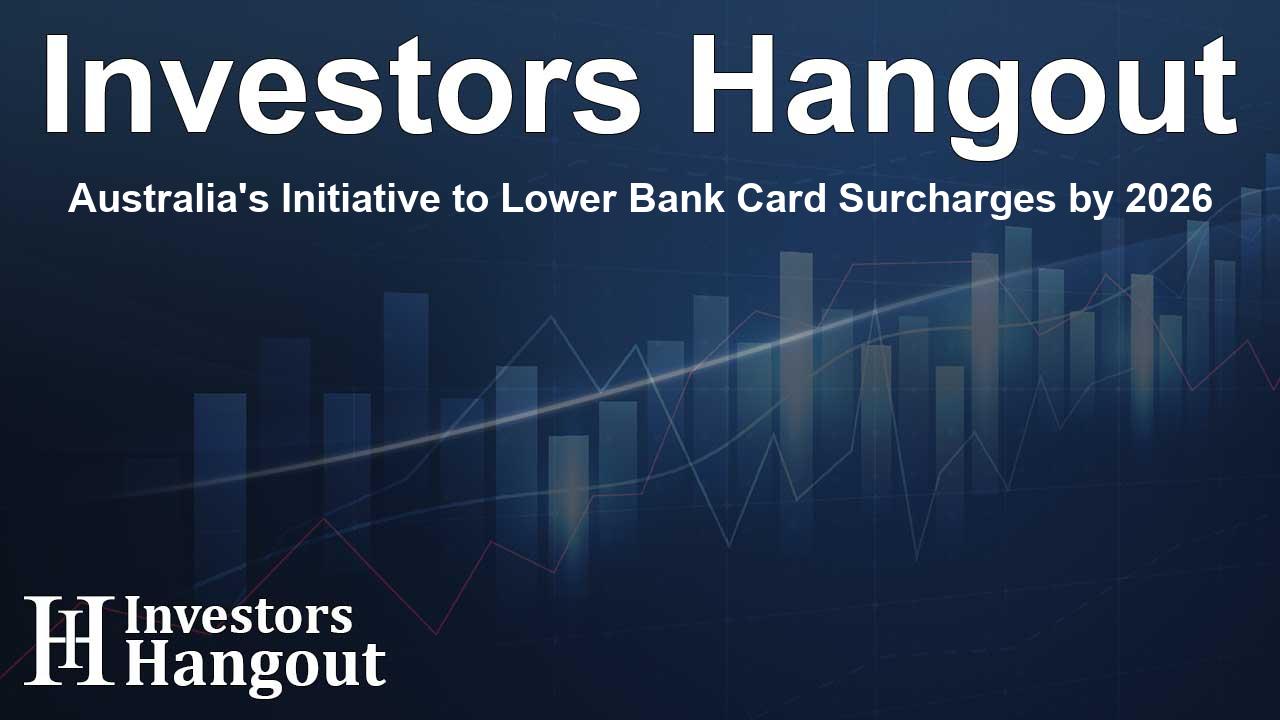Australia's Initiative to Lower Bank Card Surcharges by 2026

Australia's Initiative to Reduce Bank Card Surcharges
Australia is making significant strides towards consumer financial relief by planning to lower bank card surcharges. The government recently announced that it aims to eliminate transaction fees on debit cards as the country shifts towards reduced cash usage.
Government Review of Merchant Card Payment Costs
The announcement indicates that the central bank is currently reviewing merchant card payment costs and surcharging practices. This consultation will form the foundation for a potential ban on debit card surcharging starting in 2026. This move is aimed at enhancing competition within the payments sector.
Funding for Competition Regulation
In conjunction with these plans, an additional funding of A$2.1 million has been allocated to the competition regulator. This funding is intended to address and combat excessive surcharges that have become burdensome for consumers and businesses alike.
Consumer Protection as a Priority
According to Treasurer Jim Chalmers, the overarching goal of this initiative is to secure a better financial landscape for consumers. He emphasized that consumers should not face penalties for opting for card transactions or digital payments. At the same time, it is crucial that small businesses do not incur substantial fees simply to receive payments.
Concerns About Surcharging Practices
In light of rising living costs, the issue of surcharging has gained widespread attention. Notably, Andrew Irvine, the chief executive of National Australia Bank, expressed his outrage over being charged a 10% surcharge for a coffee in Sydney. Such high fees have sparked discussions about the fairness of existing surcharging practices.
Shifts in Payment Trends
Data from the Australian Banking Association reveals a dramatic decline in cash payments, which accounted for only 13% of all transactions in 2022, a marked drop from 70% in 2007. Predictions suggest that this number will plummet to merely 4% by 2030, reflecting a clear transition to digital payment methods.
Conclusion on Payment System Efficiency
The Reserve Bank of Australia previously recognized in 2021 that allowing merchants to implement surcharges helps foster a more efficient and competitive payment system. However, the current economic climate necessitates a reassessment of these practices to better serve consumers and businesses.
Frequently Asked Questions
What changes is Australia planning regarding bank card surcharges?
Australia aims to reduce bank card surcharges, including banning debit card surcharges by 2026.
What is the rationale behind reducing surcharges?
The move is designed to provide consumers with better deals and to reduce costs for small businesses.
How does the government plan to tackle excessive surcharges?
The government announced A$2.1 million in funding for regulators to oversee and address excessive surcharges.
What has prompted the government to address surcharging now?
High living costs and consumer feedback, including notable complaints from executives, have highlighted the need for reform.
How have payment trends changed in Australia?
Cash payments have significantly decreased, projected to reach only 4% of transactions by 2030, indicating a shift towards digital payments.
About Investors Hangout
Investors Hangout is a leading online stock forum for financial discussion and learning, offering a wide range of free tools and resources. It draws in traders of all levels, who exchange market knowledge, investigate trading tactics, and keep an eye on industry developments in real time. Featuring financial articles, stock message boards, quotes, charts, company profiles, and live news updates. Through cooperative learning and a wealth of informational resources, it helps users from novices creating their first portfolios to experts honing their techniques. Join Investors Hangout today: https://investorshangout.com/
Disclaimer: The content of this article is solely for general informational purposes only; it does not represent legal, financial, or investment advice. Investors Hangout does not offer financial advice; the author is not a licensed financial advisor. Consult a qualified advisor before making any financial or investment decisions based on this article. The author's interpretation of publicly available data shapes the opinions presented here; as a result, they should not be taken as advice to purchase, sell, or hold any securities mentioned or any other investments. The author does not guarantee the accuracy, completeness, or timeliness of any material, providing it "as is." Information and market conditions may change; past performance is not indicative of future outcomes. If any of the material offered here is inaccurate, please contact us for corrections.